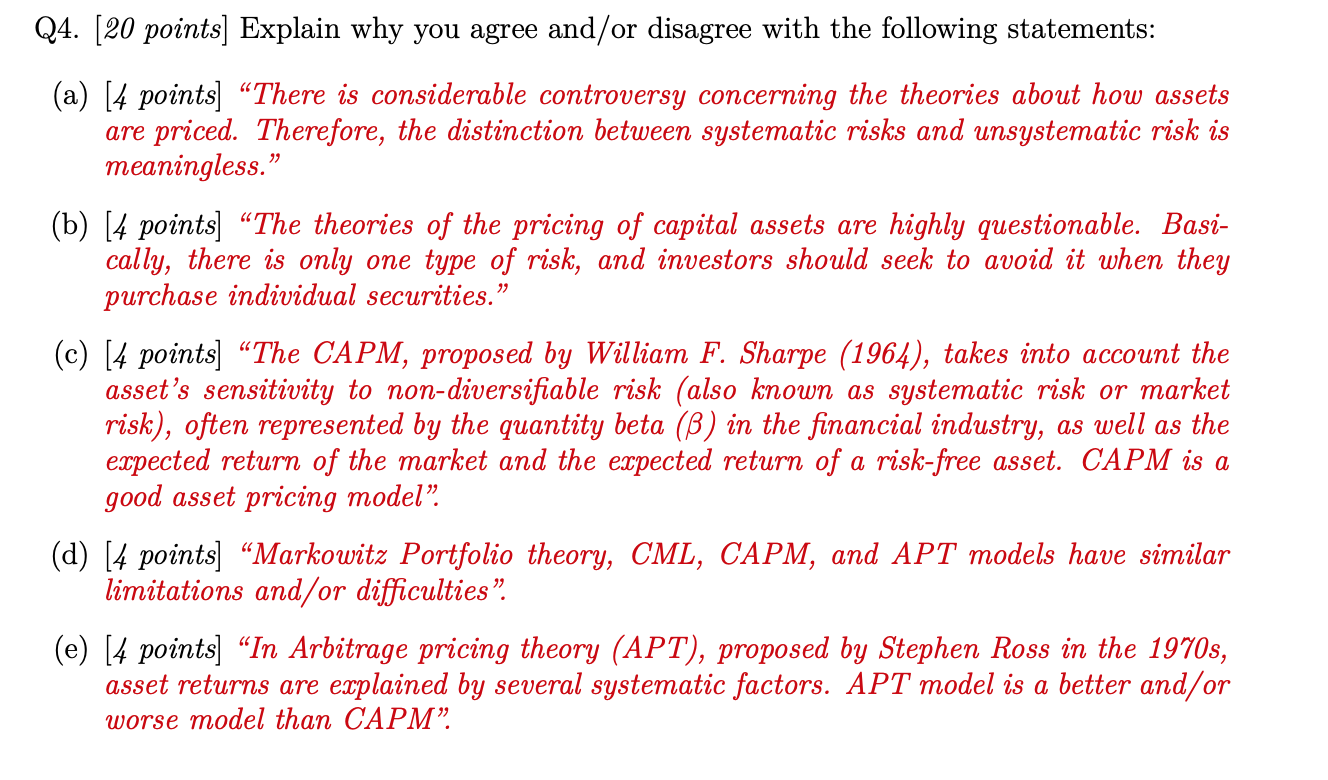
Q4. [20 points] Explain why you agree and/or disagree with the following statements: (a) 14 points) There is considerable controversy concerning the theories about how assets are priced. Therefore, the distinction between systematic risks and unsystematic risk is meaningless." (b) [4 points) The theories of the pricing of capital assets are highly questionable. Basi- cally, there is only one type of risk, and investors should seek to avoid it when they purchase individual securities." (c) 14 points) The CAPM, proposed by William F. Sharpe (1964), takes into account the asset's sensitivity to non-diversifiable risk (also known as systematic risk or market risk), often represented by the quantity beta (B) in the financial industry, as well as the expected return of the market and the expected return of a risk-free asset. CAPM is a good asset pricing model. (d) 14 points Markowitz Portfolio theory, CML, CAPM, and APT models have similar limitations and/or difficulties. (e) [4 points) In Arbitrage pricing theory (APT), proposed by Stephen Ross in the 1970s, asset returns are explained by several systematic factors. APT model is a better and/or worse model than CAPM. Q4. [20 points] Explain why you agree and/or disagree with the following statements: (a) 14 points) There is considerable controversy concerning the theories about how assets are priced. Therefore, the distinction between systematic risks and unsystematic risk is meaningless." (b) [4 points) The theories of the pricing of capital assets are highly questionable. Basi- cally, there is only one type of risk, and investors should seek to avoid it when they purchase individual securities." (c) 14 points) The CAPM, proposed by William F. Sharpe (1964), takes into account the asset's sensitivity to non-diversifiable risk (also known as systematic risk or market risk), often represented by the quantity beta (B) in the financial industry, as well as the expected return of the market and the expected return of a risk-free asset. CAPM is a good asset pricing model. (d) 14 points Markowitz Portfolio theory, CML, CAPM, and APT models have similar limitations and/or difficulties. (e) [4 points) In Arbitrage pricing theory (APT), proposed by Stephen Ross in the 1970s, asset returns are explained by several systematic factors. APT model is a better and/or worse model than CAPM







